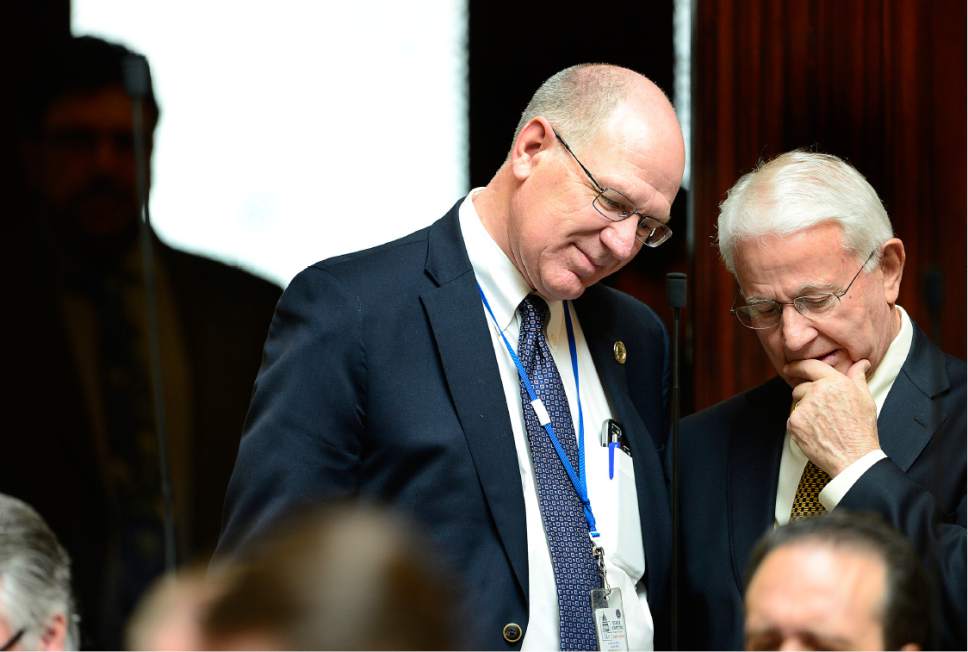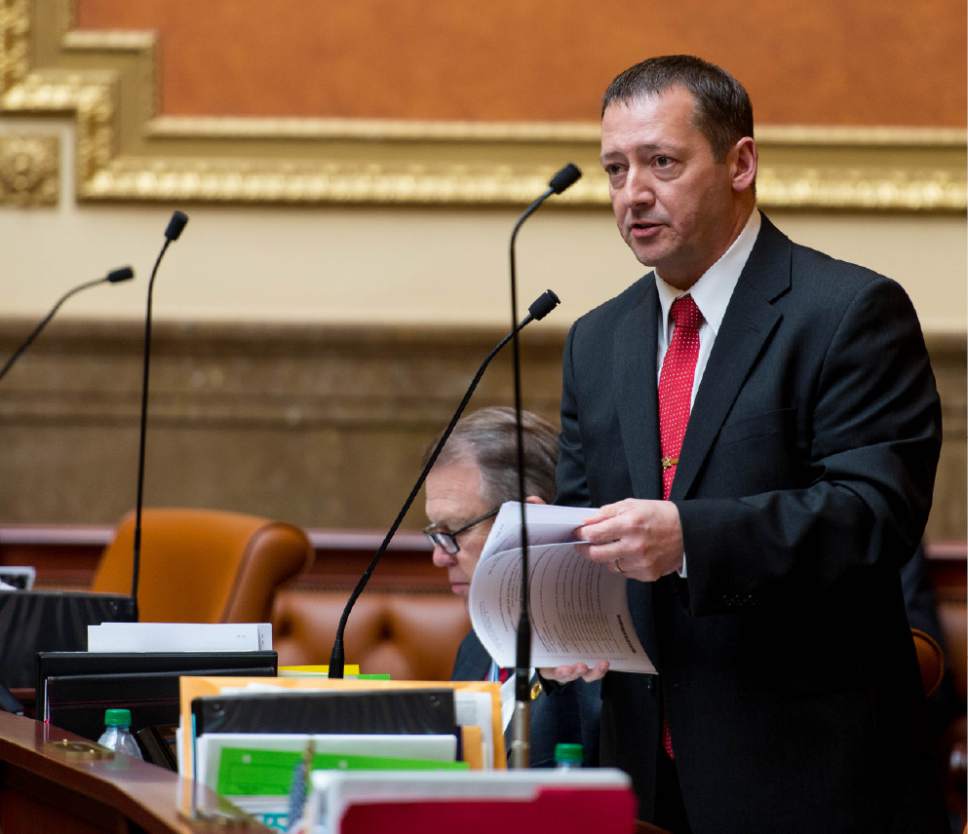This is an archived article that was published on sltrib.com in 2017, and information in the article may be outdated. It is provided only for personal research purposes and may not be reprinted.
In an unusual pair of votes, the Utah House on Tuesday supported expanding the state's death penalty — but later also approved a study on how much the death penalty costs the state financially, seen as perhaps a preliminary step toward eliminating it.
By the slimmest-possible 38-37 vote — with House Speaker Greg Hughes summoned from an outside meeting to break what had been a tie — the House passed HB176 to add human trafficking resulting in a fatality to penalties that could bring the death penalty.
An hour later, representatives voted 72-0 to pass HB187 to study exactly how much more death sentences cost compared to sentences of life without the possibility of parole.
Rep. Paul Ray, R-Clearfield, pushed the bill to expand the death penalty, calling human trafficking "one of the most heinous crimes out there.… When you cause the cause of death of somebody during trafficking, I think that warrants at least giving the prosecutor the opportunity to charge with the death penalty."
Ray was asked if it made sense instead to wait for the study on death penalty costs before expanding it.
"I'm not willing to say we're not going to carry out a penalty because of the cost," he said. "As long as we have the death penalty, this bill is not a discussion about the death penalty itself, it's just we have a really heinous crime. We have a death penalty, and it would warrant … having this under the law."
Rep. Steve Handy, R-Layton, sponsor of the study on the cost of capital punishment, said a few years ago the Legislature did a quick study on the issue — and figured it cost $1.6 million more to handle all the appeals and costs of a death sentence over 20 years compared to a life without parole sentence.
He said that figure has been criticized as too high or low. So his bill now calls for a much more thorough study on the costs.
"We like to make data-driven decisions," he said. "In this instance, we don't have enough data."
Both bills now go to the Senate for consideration.





